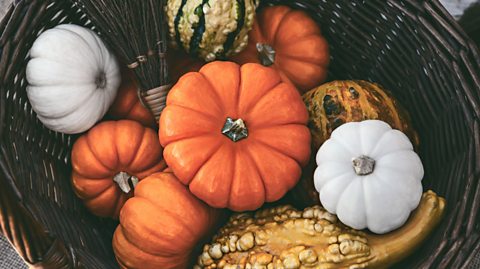Spooky season is well and truly upon us. While lots of us will be carving pumpkins, dressing up and watching scary movies, there are some for whom this time of year is incredibly sacred.
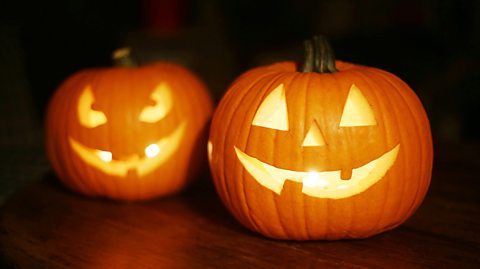
If youâve got a TikTok account, youâre likely to have come across WitchTok at some point. TikTok has an algorithm that adapts the content you come across based on what you interact with the most. The more witchy stuff you like and comment on, the more witchy stuff youâll see. WitchTok then, is the âside of TikTokâ where you see witchy content, and it's not small: videos on the WitchTok hashtag have a combined 5.2 billion views at the time of writing.
Thanks to the internet, astrology and surrounding practices have seen a surge in popularity in recent years. And social media has given witchcraft a new lease of life.
Because there are a wide variety of witches on TikTok, there is wide variety of content that they produce. Some do spell and potion tutorials, others do tarot readings, while some merely document their day-to-day lives as witches. The community's growth has also led some rather quirky headlines in recent months - for example, in July 2020, a large group of baby witches (those new to the craft) tried to hex the moon. Luckily, nothing seemed to happen⊠that we know of.
Witchcraft is traditionally quite an individual practice, so in the past it might have been difficult to find others who dabble in it. However, with the rise of TikTok and its algorithm that shows you more of the stuff you love, new witches are finding itâs easier than ever to connect with one another.
Thatâs certainly the case for Hannah, a 21-year-old practising Witch in the UK. She says that there are misconceptions about what she does, but âWitchcraft isnât sacrificing animals and worshiping the Devil. Witchcraft is about love for the Earth and for yourself. Finding magick in every day, connecting with yourself and feeling like you truly are part of something bigger.â
Wicked witch? No, Wiccan witch
There are a couple of things we need to define. You may have heard the terms Witch, Wicca, and Pagan bandied about and used interchangeably, but itâs not quite correct to do so. Although the three have a lot of crossover, and some people may identify as more than one of them, they are subtly different.
Paganism is an umbrella term that the others can loosely fall under. Itâs hard to categorise what Paganism is, as the way itâs practised varies massively, but in a nutshell itâs one of the oldest religions on Earth, and many of the religions you know and recognise today contain elements of it. Many ancient civilisations followed some form of Paganism or another, but the kind weâre most familiar with in the UK comes from the ancient Celts.
Paganism is polytheistic, which means believing in more than one god or goddess. Many of the different strands of historical Paganism honour goddesses and believe in the divine feminine, but there are some that honour gods as well as, or instead of female deities. Pagans also believe that nature is divine; because nature is so diverse, so are the divine beings with whom they work. The focus on nature is how it eventually became linked with the occult. Pagans believe they can work in spiritual harmony with nature to produce physical and mental changes, and the act of doing so is what we now call magic. Currently a number of religions identify as Pagan, and some also identify as witches, which traditionally describes somebody who works magic.
Wicca is one of them. Wiccans are what some people call Neo-Pagans - a new type of Paganism that may have roots in the ancient beliefs, but is modern and distinct.
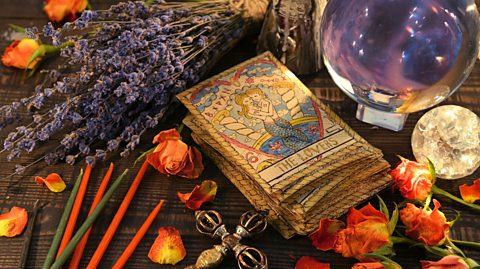
The Neo-Pagan witchcraft is primarily what youâll find all over social media today, and it has a lot of its roots in Europe and the Middle East. There are many types of witchcraft in other cultures in other parts of the world, such as Native American Navajo magic and the Zande in the Congo. However, often on TikTok, the magic youâll find witches performing are based on ancient Celtic traditions, as the people performing them are likely to be based in the US and UK if you are too.
The magic of Halloween
Within these Celtic traditions, we can also find the origins of Halloween. Celtic Pagans would celebrate their new year on 1 November, and their New Yearâs Eve festival was called Samhain (pronounced Sow-in). They believed that at this time, the boundary between the living and dead became blurred, and so on this night, one could commune with spirits.
This is essentially where we get the spooky part of Halloween from. Samhain is responsible for lots of other traditions too, such as wearing costumes, whereas others like carving pumpkins developed over time.
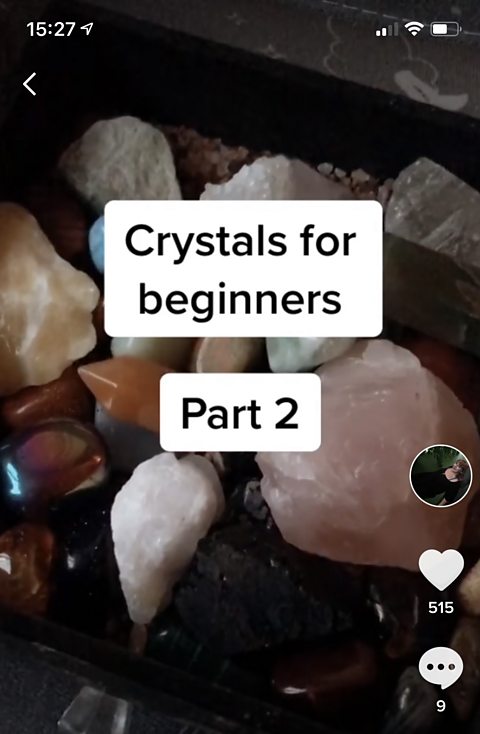
This connection with spirits in the afterlife makes Halloween an extremely important festival for lots of (although not all) witches, such as Hannah.
Sheâs been honing her craft for six years, and describes herself as an eclectic witch: âEclectic means I take little bits from all walks and paths of witchcraft and make it my own!
âIf I had to put a label on it as a specific type of witchcraft, Iâd call myself a Hedge Witch â this is a witch that communicates with the dead and uses spirit to help in their craft.â
Halloween then is a very important time of year for Hannah. âAs time has gone on and cultures have adopted and changed things, Halloween now means different things to different people and different Witches, but I know that for myself and a lot of other Celtic Witches, we still use Samhain to honour these traditions.â
To prepare, Hannah is going to make a meal for her ancestors and lay a place for them at their table, where she will speak to them. Although sheâs âvery aware that this probably sounds insane to someone who doesnât follow this pathâ, it doesnât stop her from enjoying all the more modern traditions of Halloween too: âTraditions and times change; I like my Samhain to incorporate as much of it as possible.â
This Halloween is even more special than usual. It not only falls on a full moon, which is very significant for lots of different witches, but this full moon also happens to be a blue moon. This means that itâs the second full moon to happen in the space of a month, and this only happens every few years.
So why are full moons important to witches? âA full moon brings power and energy,â Hannah says.

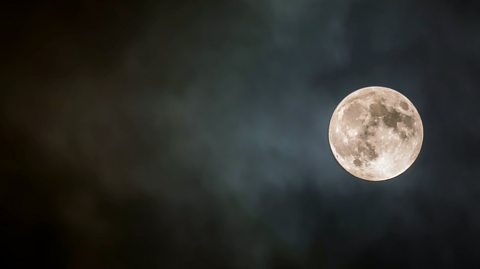
âHaving this fall on Samhain is just brilliant â it will help to charge any spells, rituals or just general Samhain festivities, like talking to the dead.â
However, just like most things in life, Covid has put something of a spanner in the works of Hannahâs Samhain plans. Itâs impacted them âmassivelyâ as she was due to celebrate it with a trip: âI was due to go away for a few nights with my witchy friends, to the middle of a forestâŠweâve had to cancel but itâs okay because we can still meet up on Samhain night, socially distanced, and howl at the moon.
âThatâs a joke, we donât do that.â
But even the pandemic canât stop her loving this time of year. Her favourite thing about it?
âThe atmosphere. The autumn is finally here, the air feels so fresh and crisp. I always feel so connected to the Earth, the universe and my past at this time of year. It just feelsâŠhomely.â
Quiz: The spook-tacularly difficult Halloween quiz
How many of these spook-tacular Halloween traditions and superstitions do you know?
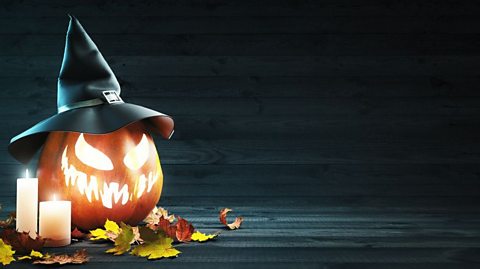
Years of fears: How horror films keep us on the hook
We look at how horror films have changed to keep us screaming.

Pumpkin spice: How did it all begin?
The smell of pumpkin spice is an autumn classic, but where does this blend of flavours come from?
